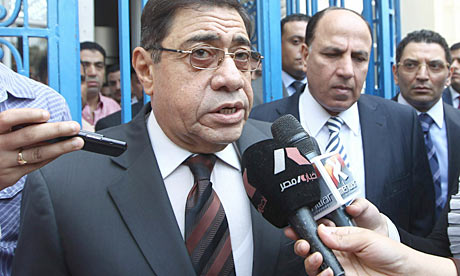By Charlie Cabot
CAIRO: Egyptian activists responded sharply to Julian Assange’s assertions that his website, WikiLeaks, played a role in the January 25 Revolution.
Assange, editor-in-chief and founder of WikiLeaks, ran an advertisement last week that featured a clip of himself watching protests at the Kasr al-Nil bridge in Cairo on January 28.
“Watching the world change as a result of your work? Priceless,” the ad narrated, mimicking popular Mastercard commercials. “There are some people that don’t like change. For everyone else, there’s WikiLeaks.”
WikiLeaks released a trove of confidential US cables in late 2010, many of which related to Tunisia and Egypt’s regimes.
Bloggers and activists have jumped on the advertisement, attacking Assange’s implications and disparaging WikiLeaks’ role in the revolution.
“Dear Julian, it was not the WikiLeaks,” wrote Zeinobia, a prominent blogger. “For the record, very few cables were allowed to be published in Egypt.”
Zeinobia added that the battle of Kasr Al-Nil bridge was not material for parodies.
“I don’t think that WikiLeaks was related in any way to the Egyptian revolution,” social rights activist Wael Khalil told Daily News Egypt. “It didn’t tell us much about things that we didn’t know.”
Many cables that may have had a greater impact were censored by the Mubarak regime, and did not emerge until after the revolution. One such cable revealed that Israel was putting suggestions forward to the US regarding their preferred successor to Mubarak.
Assange defended his theories in an interview with Amy Goodman, who questioned him about WikiLeaks’ role in the Arab Spring.
Speaking on the TV program Democracy Now!, Assange explained that the leaked US cables made Tunisia’s problems “undeniable to everyone, including the United States.”
“No one could deny that the Ben Ali regime was fundamentally corrupt [after the release],” Assange said. “It was not possible for the United States to support the Ben Ali regime, and intervene in a revolution, in the way that it might have.”
He did not specify the cables’ roles in the Egyptian revolution.
But most of the cables in both countries only confirmed things that the people already knew, Khalil argued.
“It was an inside joke among activists rather than an expose of the regime,” Khalil said. “It didn’t expose much. It just gave us an insight of how the Americans see Mubarak.”
Suggestions that WikiLeaks had incited the revolution originally surfaced in the period between Egypt and Tunisia’s revolutions, in part because Libyan ruler Col. Moammar Qaddafi mentioned the website in January.
“WikiLeaks publishes information written by lying ambassadors in order to create chaos,” Qaddafi said.
But even then, most activists immediately saw the link between WikiLeaks and the revolutions as unfounded, Khalil explained.
“What was common knowledge [at the time of the leak] already exceeded WikiLeaks,” blogger Alaa Abd El Fattah wrote on twitter. “It had absolutely no impact.”
Assange lashed back at bloggers in the interview, describing them as “people who just want to demonstrate peer value conformity, and who don’t actually do any original news, who don’t actually do any original work.”
“That hypocrisy of saying that you care about a situation, but not actually doing the work is something that has angered me,” Assange said.

